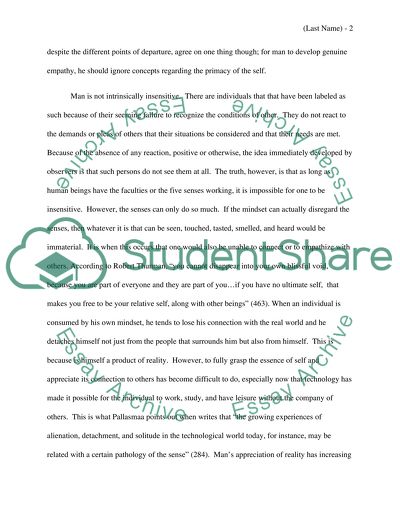Cite this document
(“Conceptualizing the Self. Empathizing with Others Essay”, n.d.)
Retrieved from https://studentshare.org/literature/1438129-how-might-the-way-we-understand-or-conceptualize
Retrieved from https://studentshare.org/literature/1438129-how-might-the-way-we-understand-or-conceptualize
(Conceptualizing the Self. Empathizing With Others Essay)
https://studentshare.org/literature/1438129-how-might-the-way-we-understand-or-conceptualize.
https://studentshare.org/literature/1438129-how-might-the-way-we-understand-or-conceptualize.
“Conceptualizing the Self. Empathizing With Others Essay”, n.d. https://studentshare.org/literature/1438129-how-might-the-way-we-understand-or-conceptualize.


